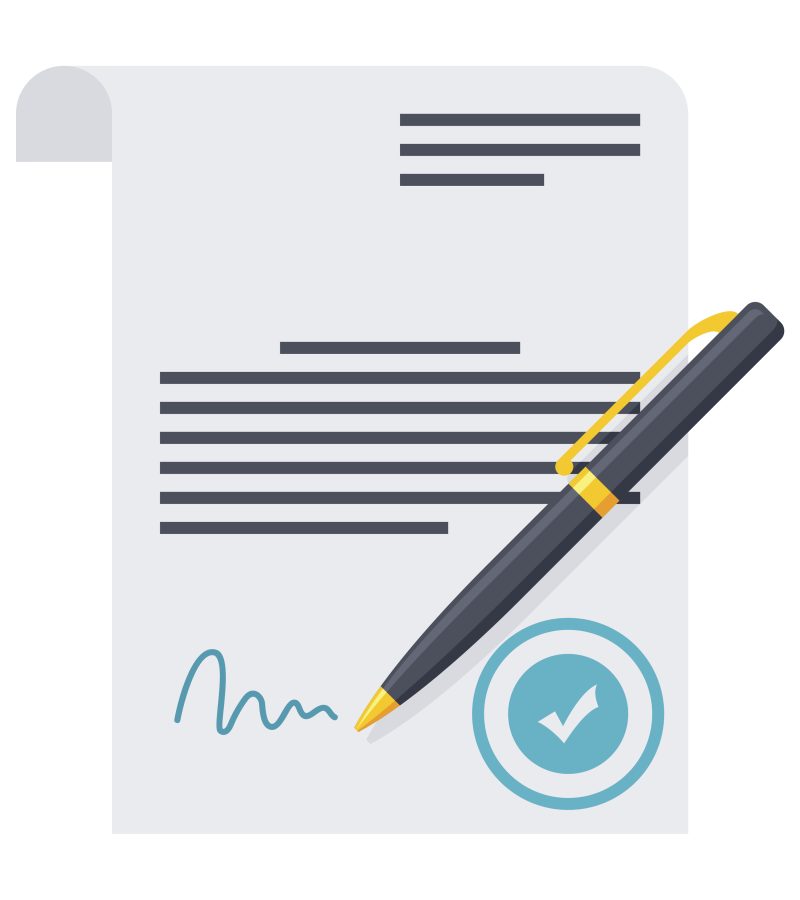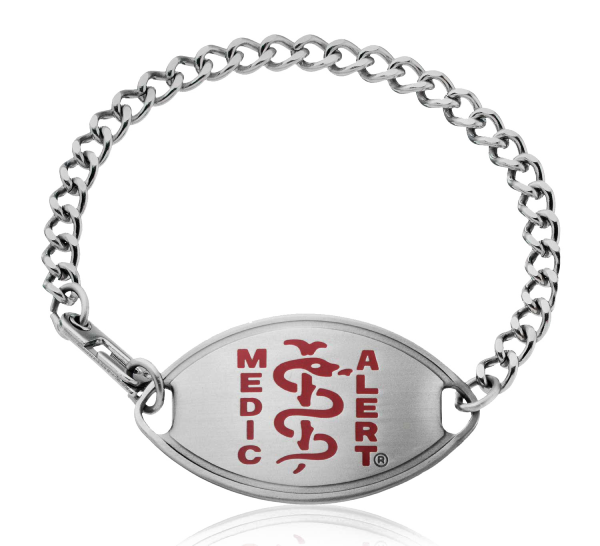
DNR & Advance Directives: What You Need To Know
Planning for the future is more than just setting yourself up financially. Looking ahead to your final moments now will save you and your loved ones from the stress of painful last-minute decisions.
Bottom line: you should absolutely have a DNR or advance health care directive.
With a little preparation, your family can give you the peace of mind you deserve and honor the end-of-life plans you’ve chosen. A MedicAlert medical ID and membership helps ensure that your wishes are communicated to your medical care team.
What is an advance directive?
An advance directive is a document that states the type of care you want to receive should you become unable to make sound medical decisions for yourself. This helps you prepare for the unexpected–if you’re seriously injured, diagnosed with terminal illness, experiencing severe dementia, or in a coma.
While laws for advance directives differ from state to state, there are several options. Let’s learn about some examples of advance directives below:
In this article:
Living Will
A living will describes the kind of medical treatment you want to receive if you need life-sustaining care. However, it doesn’t allow a chosen designate to make decisions on your behalf should you become seriously or terminally ill. The National Institute on Aging, part of the NIH, has a well-written guide to preparing a living will.
Durable Power of Attorney for Healthcare
In the event you’re rendered unable to make your own medical decisions, the durable power of attorney (healthcare proxy) allows a person of your choosing to make these decisions on your behalf.
Pre-Hospital Do-Not-Resuscitate (DNR)
Informs your medical team that you’ve requested not to have cardiopulmonary resuscitation (CPR). This order is governed on a per-state or county basis by special laws. Without this document, should your heart stop or you cease breathing, emergency first-responders within the United States will begin CPR or other life saving techniques.
How do I get a Do Not Resuscitate order?
The first step is letting your loved ones know what your wishes are. It might be a difficult conversation, but it’s necessary. Talk over the options, and be specific about the end-of-life care you’d like to receive.
Next, speak with your medical care team so they’re aware of your choices. Pre-hospital DNR orders are considered physician orders, and therefore require a physician’s signature. A pre-hospital DNR instructs medical personnel not to perform CPR on patients when an emergency occurs outside of a hospital.
Where can I get DNR forms?
Each state has a specific DNR law and approval form. Some states have standardized forms for DNR orders; if the order is not written on that specific form, it cannot be honored. Other states are less regimented, honoring any type of DNR order.
To be safe, check with your state’s Health Department to understand their specific requirements. Your doctor can also assist you in obtaining and filling out this simple document.
Does a DNR have to be siged by a doctor?
Before it is legally binding, in most states the DNR must be signed by a physician as well as notarized by a notary public. Once these steps are completed, your document is recognized by the state. Then, give your properly completed advance directive or DNR form to all parties, including MedicAlert Foundation.
Again, we can’t emphasize enough how important it is to know and follow the DNR laws and requirements of your state. And remember – if you already have a DNR but move to another state, you must execute a new DNR that complies with that state’s laws and regulations.
What MedicAlert can do for you
With a MedicAlert Safe & Connected or Safe & Found membership, you can store your care directives and end of life wishes as part of your profile–making sure that healthcare providers and first responders are notified of your choices.
To add a DNR or advance directive to your MedicAlert account, log in, navigate to “My Health Record,” and click on the “Advance Directives” tile. Just follow the instructions there to upload your documents. If you need assistance, our Member Services team is happy to help.
For over 65 years, MedicAlert has been the globally recognized symbol for medical emergencies. When emergency responders are rushing to provide immediate care for you, the last thing you want is for them to go in ill-equipped. Having prior knowledge of your health issues and wishes can help you get the right care in your moment of need.
By wearing an easily recognizable MedicAlert ID, medical professionals know immediately that you have a medical condition–and if you have a verified DNR form on file with MedicAlert, we’ll communicate your wishes to emergency providers. MedicAlert will transmit the advance care directive to the care team treating you, so they’re clear on your instructions.
Why you need the fully executed documents
It’s important to understand that just because you have “DNR” engraved on your medical ID, first responders are not bound to honor it without the applicable signed and approved document. They require the correct DNR form – signed by your doctor – in order to withhold CPR. That’s why the MedicAlert team goes the extra mile to ensure you have a valid form on file.
When you request to have “DNR” engraved on an ID, our team reaches out to you to get your DNR form. Once we’ve received it, our team reviews each form to ensure it is properly executed. Once we’ve confirmed that it’s valid, you can upload it to your MedicAlert health record. At the same time, we’ll proceed with engraving your ID as requested. It may add a few days to the delivery of your ID, but it’s worth it for your wishes to be
Who needs a MedicAlert medical ID?
Medical alert IDs provide a signal to responding medical teams that you have a medical condition requiring special care. If you engrave DNR on your ID, it can communicate your wishes regarding resuscitation.
People with allergies to medications, food, or other anaphylactic agents will benefit from wearing a medical ID. Folks living with conditions such as autism, Alzheimer’s or dementia, diabetes, heart disease, COPD, epilepsy, and other medical concerns need this protection as well. With an ID, you can easily relay the information needed to get proper care in an emergency – whether you’re conscious and alert or not.
MedicAlert goes the extra mile to ensure that your DNR or end of life wishes can be honored. Our staff reviews every DNR added to a member record to ensure that it meets the requirements for your state and is signed by a physician. Your DNR or healthcare proxy is stored on our HIPPA-compliant servers. In an emergency, we can transmit your DNR or healthcare proxy to the facility treating you.
Other medical ID companies allow you to engrave DNR on your ID – but without the properly executed forms to back it up, emergency personnel are not bound to honor the engraving. They must have the correct legal forms. That’s why MedicAlert takes such care to ensure you have the correct, fully executed forms on file.
What are other benefits of a MedicAlert membership?
Secure storage of your personal records
Documents such as your advance directive or do-not-resuscitate order are safely stored in our secure, HIPAA-compliant database.
Availability 24/7 around the world
Your documents are available around the clock, 365 days a year to any responding medical professional, anywhere in the world.
Family notification service
In the event of an emergency MedicAlert informs your family or emergency contacts so you’re not alone in a crisis.
Healthcare proxy and provider communication
MedicAlert will, upon request, provide a previously designated healthcare proxy (agent), or your medical care team, with a copy of your advance directive forms.
Internationally recognized
First responders and healthcare professionals around the globe look for and recognize the iconic MedicAlert emblem.
Ongoing professional education
Our training and outreach programs help healthcare and emergency personnel to understand and access your health information via MedicAlert.
By enrolling in a MedicAlert membership, your critical information is all in one place. You can feel confident that your medical records are secure, and also immediately available via MedicAlert’s 24/7 emergency hotline to the care teams treating you.
MedicAlert stores your personal profile so first responders get the most up-to-date information about you. To help you be prepared, we offer printable patient forms that include your emergency health record.

MedicAlert Membership
24/7 Protection
MedicAlert Member Benefits
Enjoy life-saving benefits and store your comprehensive health history for emergency treatment.

Wearable Medical IDs
for Any Condition
Wearable MedicAlert IDs
A medical ID communicates vital medical information to first responders so you can receive the care you need.

QR Code IDs
Scannable Medical IDs
QR Code Digital IDs
Perfect for people with multiple conditions and complicated histories.